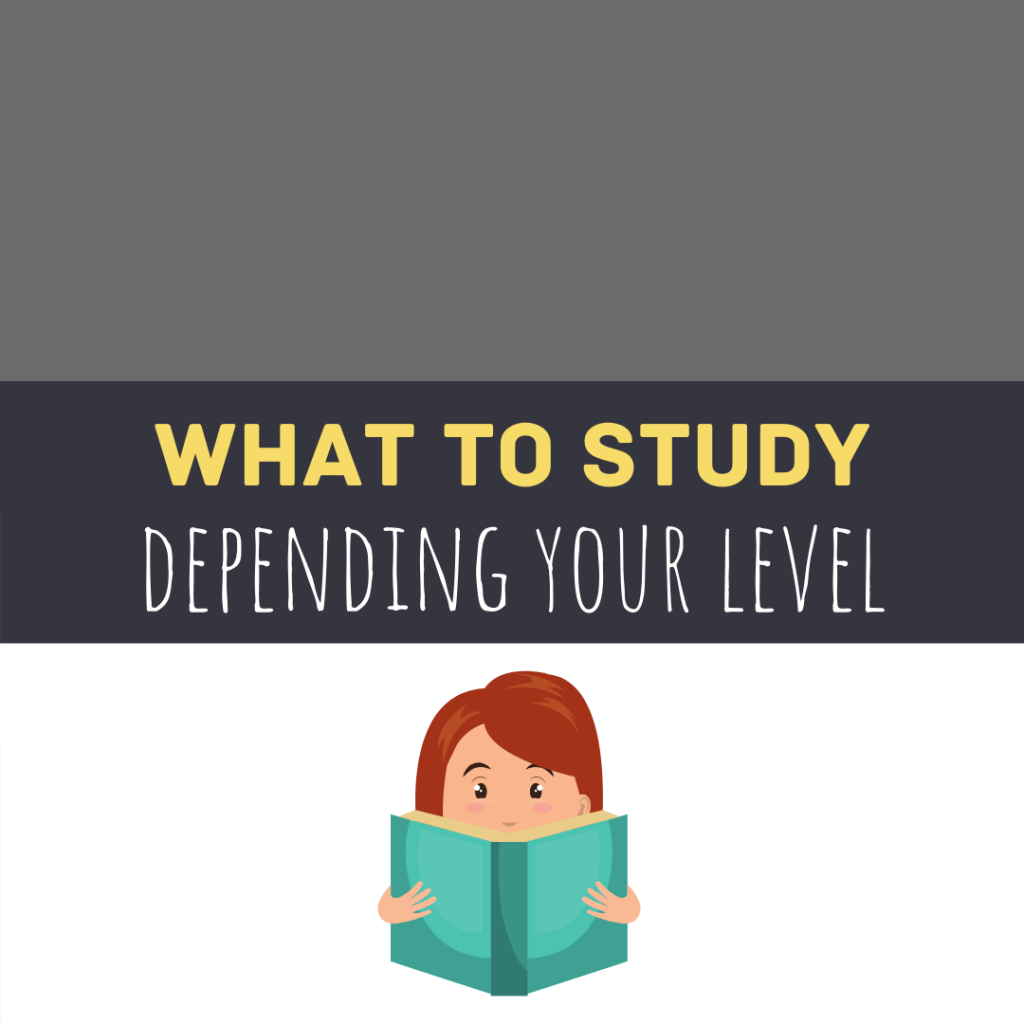
So… you don’t know where to start when learning English or you feel you keep studying the same thing over and over again. If you’re studying English with an specific purpose, like for work or travel, is good to think the situations where you will use the language and focus on the vocabulary you can use on those situations. But if you’re studying it just because you like it or you can’t really imagine the situations where you will speak English so you want to be prepared for everything, you can use a guide to help you in your path of learning.
Here is a list of vocabulary and grammar of the essentials you should learn depending on your level, and also you have a short definition of the different CEFR levels to know what you need to achieve to master every level. More info about what the CEFR levels are, and what your level is here.
You don’t know what your level is? Take the FREE test. Click here!
A1 Beginner
Can understand sentences and frequently used expressions related to areas of most immediate relevance
(e.g. very basic personal and family information, shopping, local geography, employment).
Can communicate in simple and routine tasks requiring a simple and direct exchange of information on familiar and routine matters.
Can describe in simple terms aspects of their background, immediate environment and matters in areas of immediate need.
Source: Wikipedia
VOCABULARY
Greetings and farewells
Alphabet (spelling)
Introducing yourself (personal info, age, nationality)
Numbers
Days of the week
Months
Dates
Clothes
Weather and seasons
Family
Household chores
Routines, habits
Jobs
Food
Sports
Abilities and talents
Parts of the body
Basic health problems
Stores
GRAMMAR
Simple present (positive, negative and questions)
Articles: a/ an/ the
There is / there are
Prepositions of place
Possessives
Present continuous
Telling the time
Some and any
Adverbs of frequency
Future tense with be going to
Simple past (positive and negative, questions, regular and irregular verbs)
Prepositional phrases (at, in, on)
Subject vs object pronouns
A2 Elementary
Can understand sentences and frequently used expressions related to areas of most immediate relevance
(e.g. very basic personal and family information, shopping, local geography, employment).
Can communicate in simple and routine tasks requiring a simple and direct exchange of information on familiar and routine matters.
Can describe in simple terms aspects of their background, immediate environment and matters in areas of immediate need.
B1 Intermediate
Can understand the main points of clear standard input on familiar matters regularly encountered in work, school, leisure, etc.
Can deal with most situations likely to arise while travelling in an area where the language is spoken.
Can produce simple connected text on topics that are familiar or of personal interest.
Can describe experiences and events, dreams, hopes and ambitions and briefly give reasons and explanations for opinions and plans.
Source: Wikipedia
VOCABULARY
Making indirect requests
Accepting and declining requests
Narrating a store
Talking about customs
Making complaints
Explaining something that need to be done
Identifying and describing environmental problems and coming up with solutions
Talking about things you need to have done
Talking about future
Describing regrets
Describing hypothetical situations
Pet peeves
Giving advice for past situations (should have, could have, would have)
Tag questions
Describing challenges, frustrations and rewards.
GRAMMAR
Expressing wishes
Passive voice
Relative pronouns
Gerunds
Past continuous
Past perfect
Would rather vs would prefer
Have or get something done (active and passive)
Future continuous
Future perfect
Past modals for degrees of certainty: must have, may have, might have, could have



